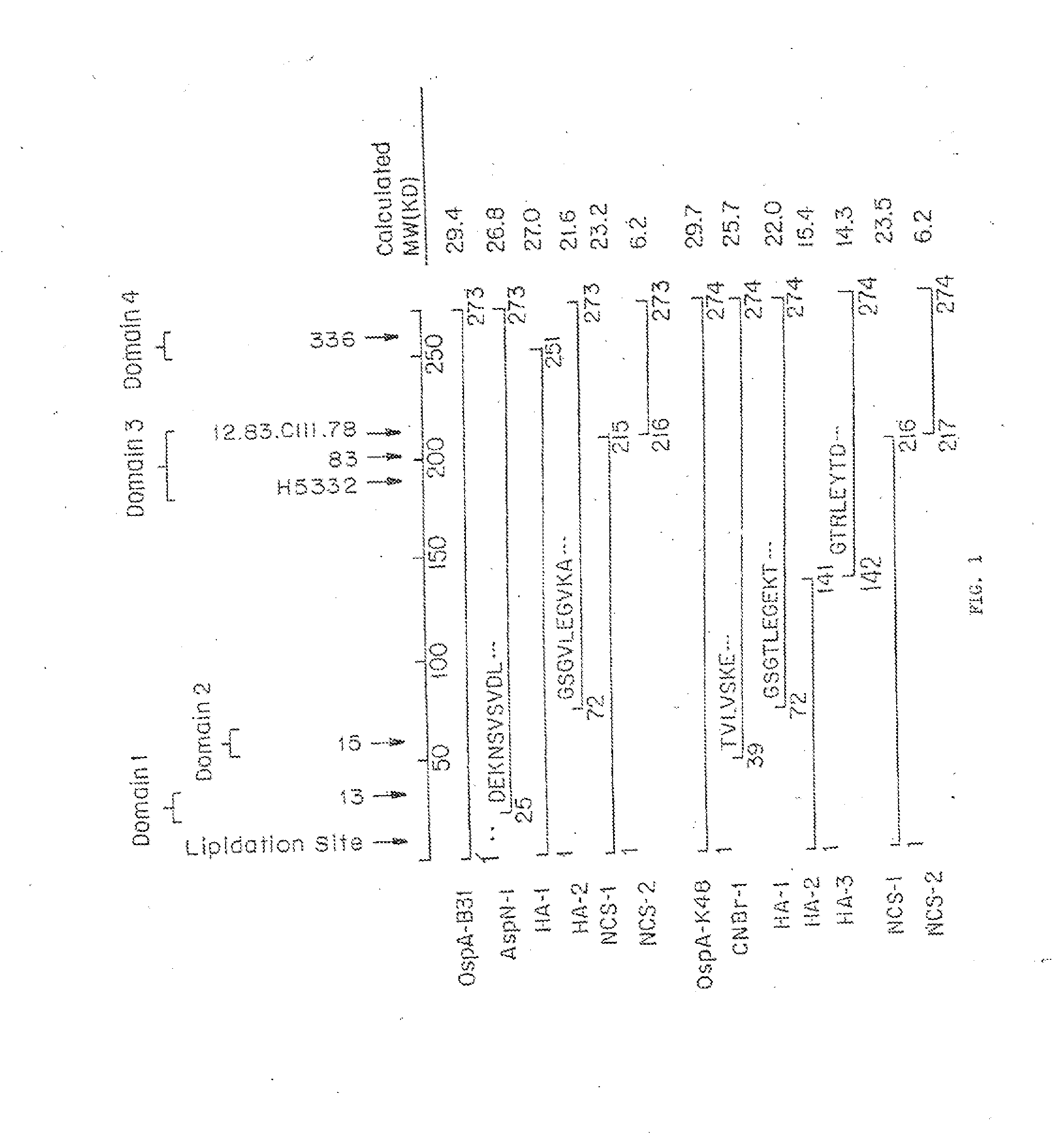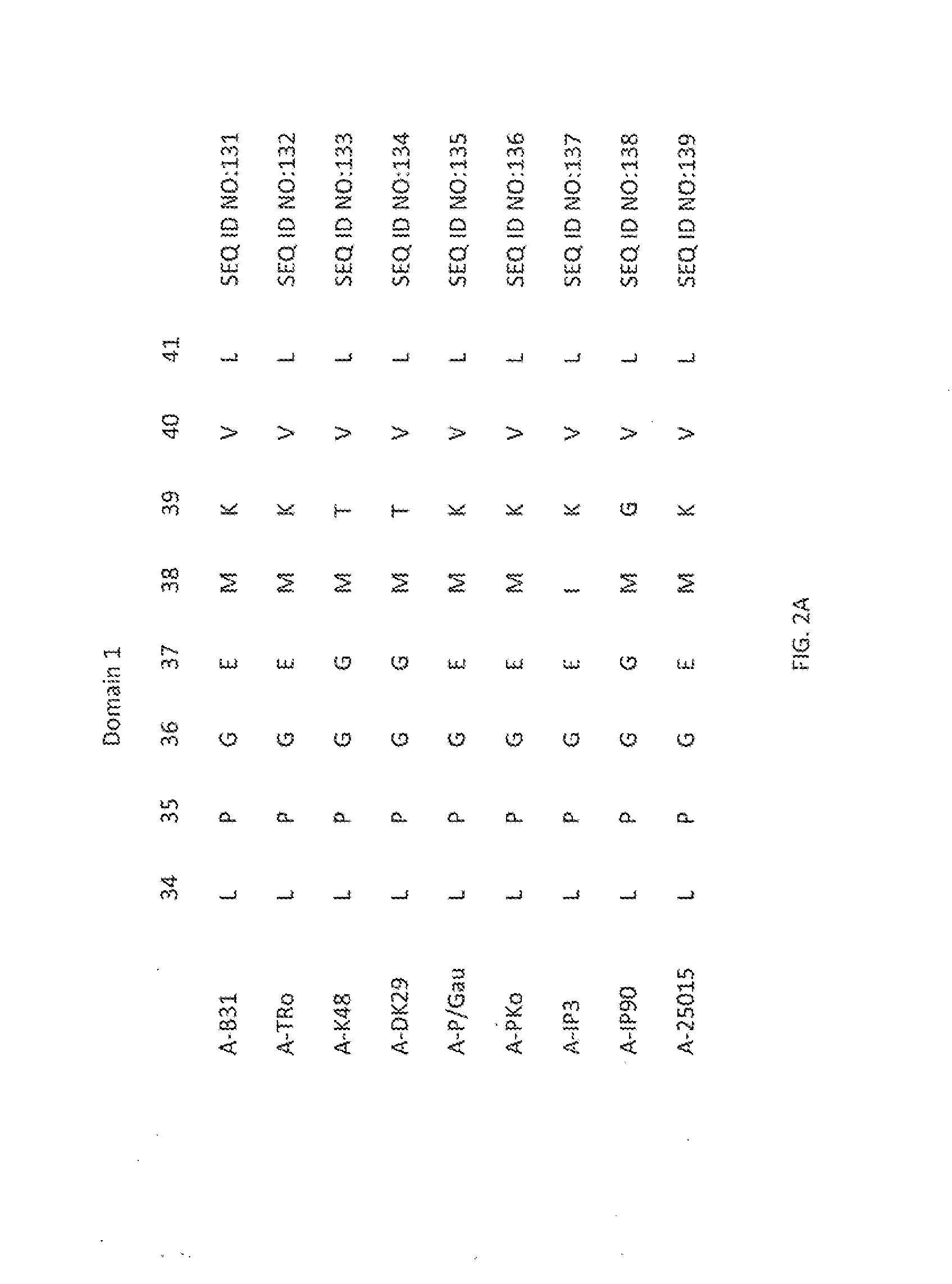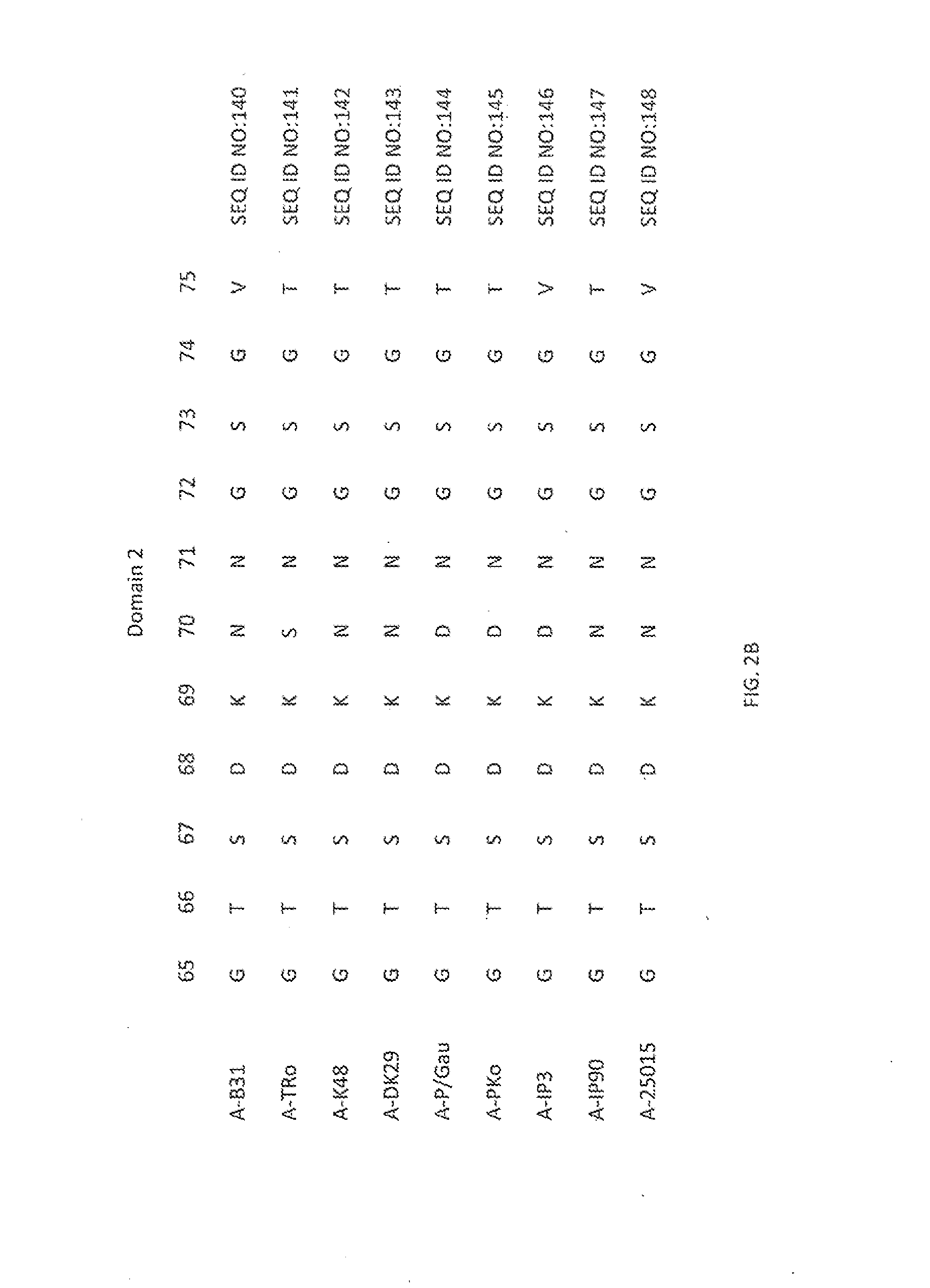Altered OSPA of Borrelia Burgdorferi
a technology of borrelia burgdorferi and ospa, which is applied in the field of altered ospa of borrelia burgdorferi, can solve the problems of ineffective treatment with antibiotics, often delayed treatment, and inability to cure infections, and achieves the effects of reducing cross-reactivity to hlfa-1, increasing conformational stability, and maintaining at least some antigenicity
- Summary
- Abstract
- Description
- Claims
- Application Information
AI Technical Summary
Benefits of technology
Problems solved by technology
Method used
Image
Examples
example 1
Purification of Borrelia burgdorferi Outer Surface Protein A and Analysis of Antibody Binding Domains
[0139]This example details a method for the purification of large amounts of native outer surface protein A (OspA) to homogeneity, and describes mapping of the antigenic specificities of several anti-OspA MAbs. OspA was purified to homogeneity by exploiting its resistance to trypsin digestion. Intrinsic labeling with 14C-palmitic acid confirmed that OspA was lipidated, and partial digestion established lipidation at the amino-terminal cysteine of the molecule.
[0140]The reactivity of seven anti-OspA murine monoclonal antibodies to nine different Borrelia isolates was ascertained by Western blot analysis. The reactivity of the altered OspA polypeptides described herein was tested using similar methods. Intact, lipidated or non-lipidated OspA and altered OspA can also be tested using similar methods. Purified OspA was fragmented by enzymatic or chemical cleavage, and the monoclonal anti...
example 2
Site-Directed Mutagenesis within Hypervariable Domains A., (Residues 120-140), B., (Residues 150-180) and C., (Residues 200-216 or 217)
[0163]Site-directed mutagenesis was performed to convert residues within the 204-219 domain of the recombinant B31 OspA to the analogous residues of a European OspA variant, K48. In the region of OspA between residues 204 and 219, there are seven amino acid differences between OspA-B31 and OspA-K48. Three oligonucleotides were generated, each containing nucleotide changes which would incorporate K48 amino acids at their analogous positions in the B31 OspA protein. The oligonucleotides used to create the site-directed mutants were:
5′-CTTAATGACTCTGACACTAGTGC-3′ (#613, which converts threonine at position 204 to serine, and serine at 206 to threonine (Thr204-Ser, Thr206-Ser)) (SEQ ID NO:1);
5′-GCTACTAAAAAAACCGGGAAATGGAATTCA-3′ (#625, which converts alanine at 214 to glycine, and alanine at 215 to lysine (Ala214-Gly, Ala215-Lys)) (SEQ ID NO:2); and
5′-GCAG...
example 3
Borrelia Strains and Proteins
A. Genes Encoding Borrelia Proteins
[0174]The altered OspA polypeptides of the current invention can be part of a cocktail with other proteins or can be joined to other proteins to form a chimeric protein. The other polypeptides of the cocktail or chimeric can be derived from any Borrelia. Representative proteins include OspA, OspB, OspC, OspD, p12, p39, p41 (fla), p66, and p93. Nucleic acid sequences encoding several Borrelia proteins are available (see Table II for examples); alternatively, nucleic acid sequences encoding Borrelia proteins can be isolated and characterized using methods such as those described below.
TABLE IIReferences for Nucleic Acid Sequences for SeveralProteins of Various Borrelia StrainsStrainOspAK48X62624 (SID 8)PGauX62387 (SID 10)DK29X63412 (SID 21)PkoX65599 (SID 25)PTrobX65598 (SID 45)Ip3X70365 (SID 24)Ip90Kryuchechnikov, V. N.et al., J.Microbiol. Epid.Immunobiol. 12: 41-44(1988) (SID 22)25015Fikrig, E. S. et al., J.Immunol. 7: 2...
PUM
| Property | Measurement | Unit |
|---|---|---|
| temperature | aaaaa | aaaaa |
| temperature | aaaaa | aaaaa |
| pH | aaaaa | aaaaa |
Abstract
Description
Claims
Application Information
 Login to View More
Login to View More - R&D
- Intellectual Property
- Life Sciences
- Materials
- Tech Scout
- Unparalleled Data Quality
- Higher Quality Content
- 60% Fewer Hallucinations
Browse by: Latest US Patents, China's latest patents, Technical Efficacy Thesaurus, Application Domain, Technology Topic, Popular Technical Reports.
© 2025 PatSnap. All rights reserved.Legal|Privacy policy|Modern Slavery Act Transparency Statement|Sitemap|About US| Contact US: help@patsnap.com



